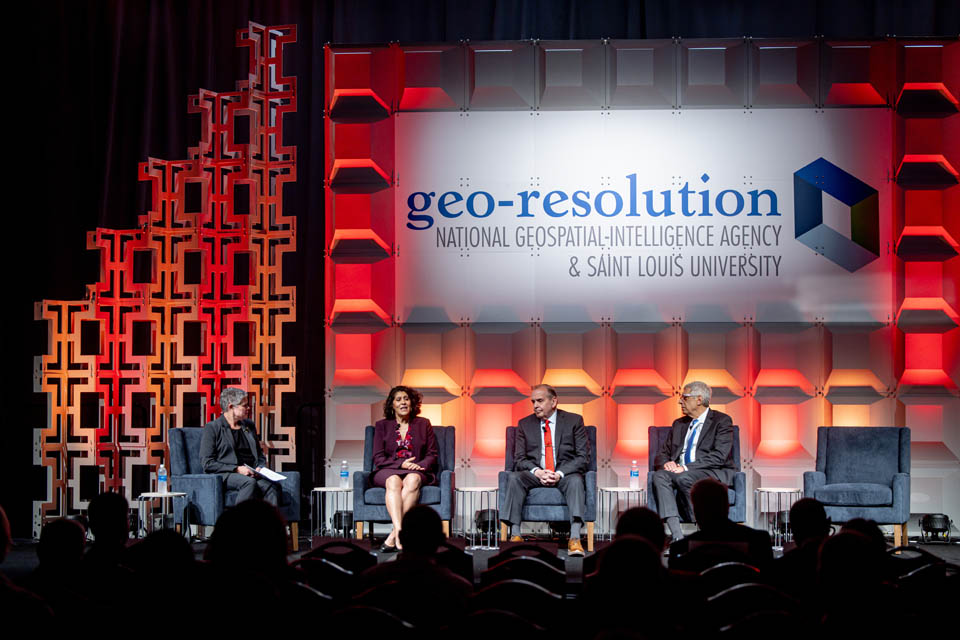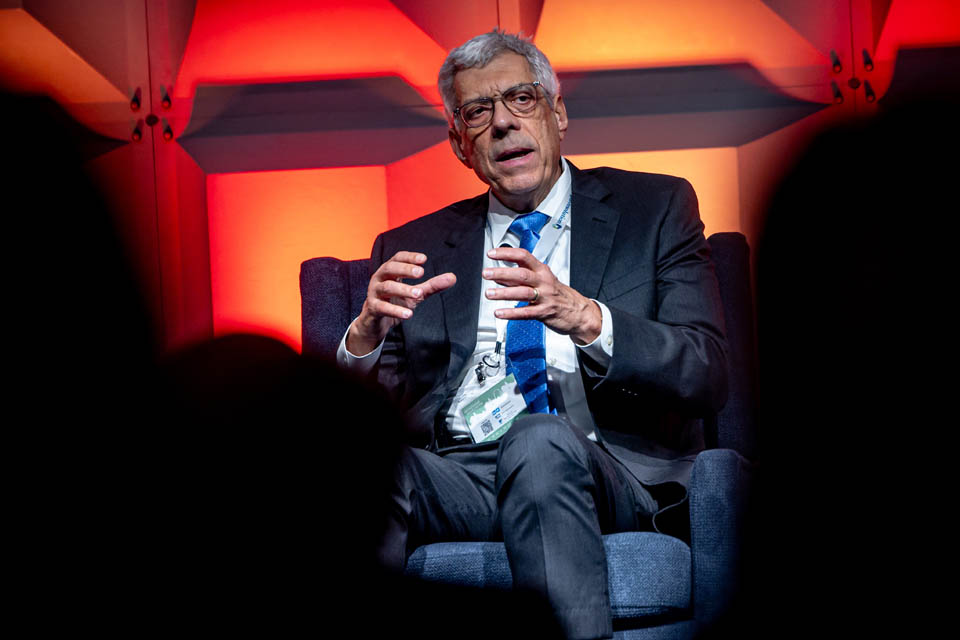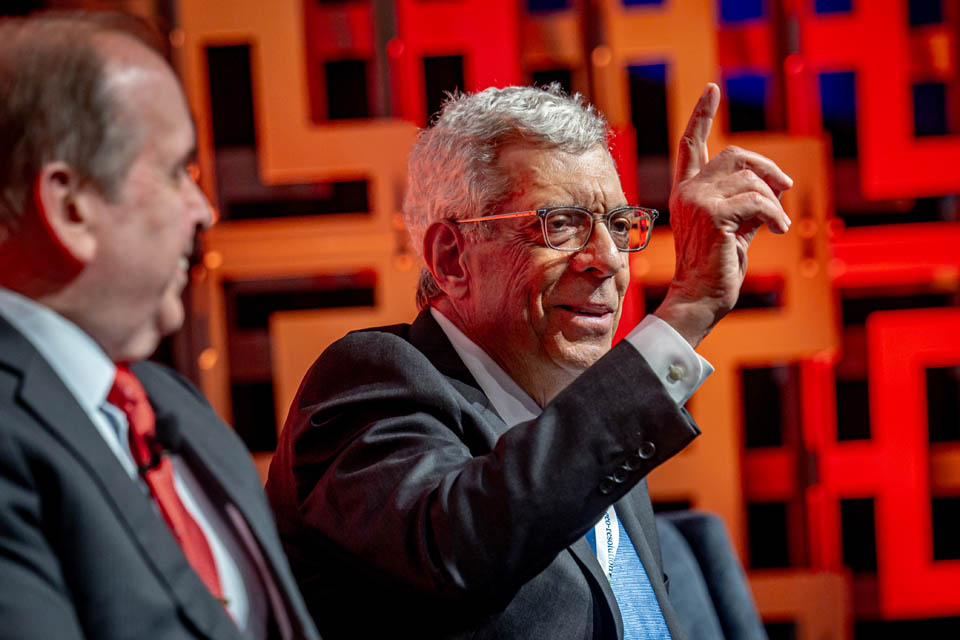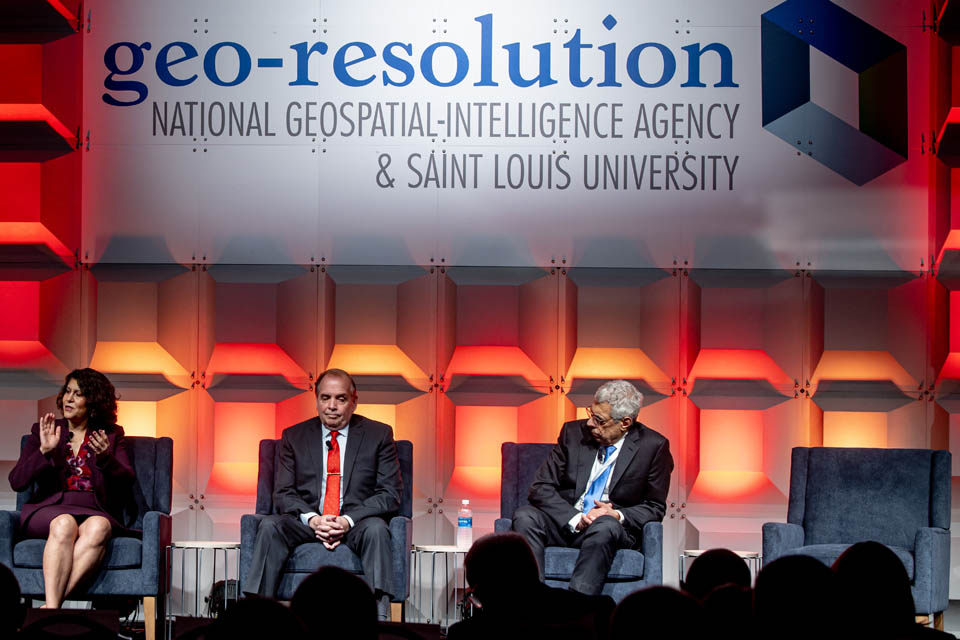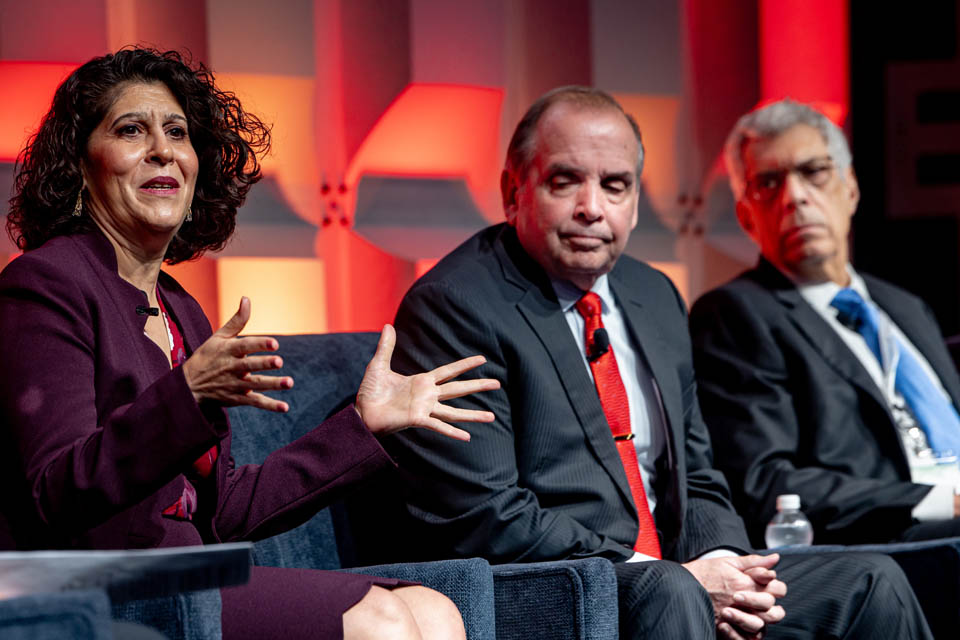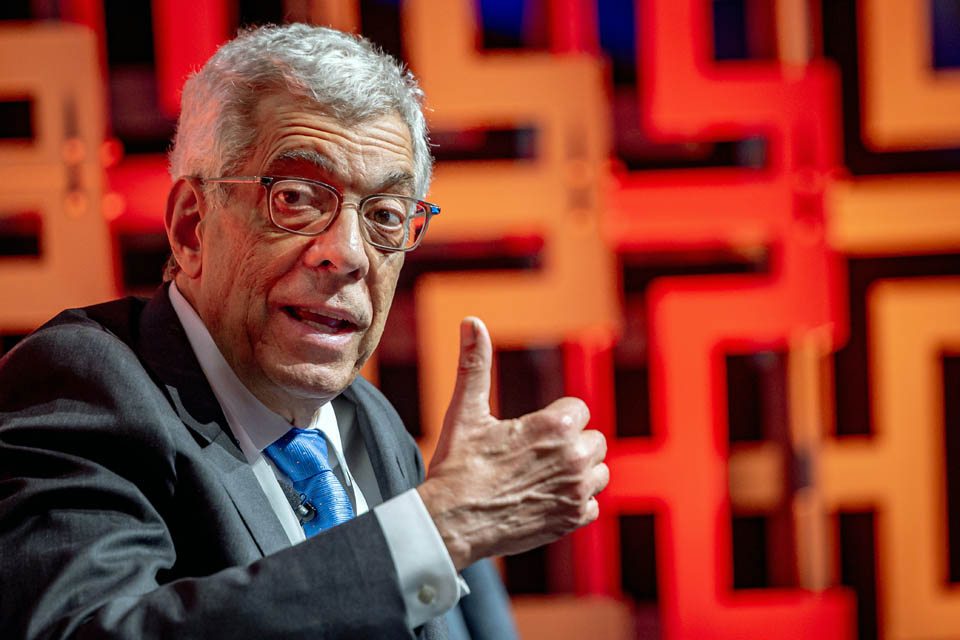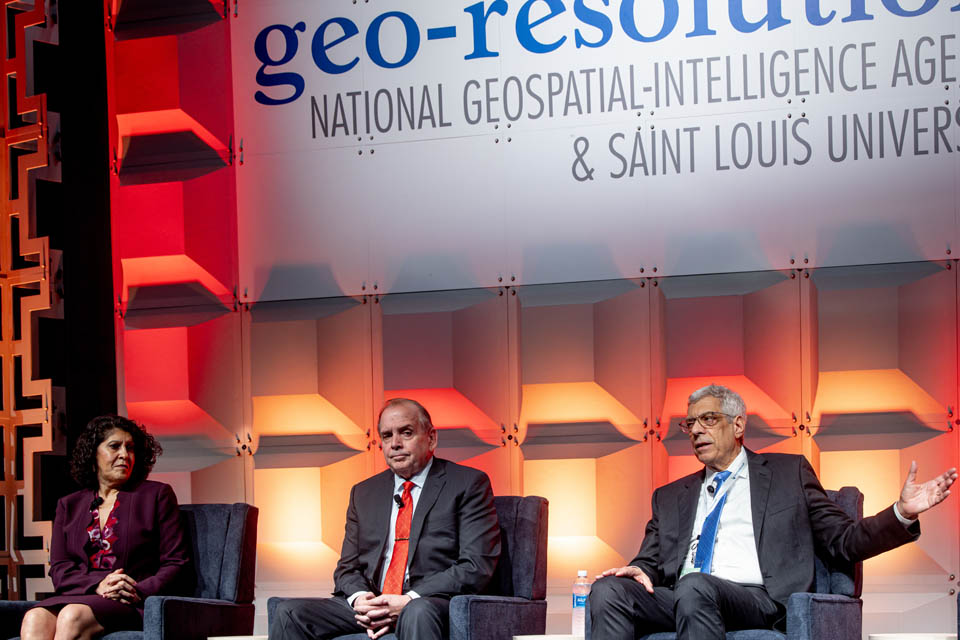Leaders Tout Teamwork for Geospatial Success in St. Louis
09/13/2024
The future of geospatial work in St. Louis is collaboration.
Thursday morning, a record crowd attended the sixth Geo-Resolution conference at Saint Louis University. The annual event, co-hosted by the National Geospatial-Intelligence Agency and SLU, was focused this year on the future — the event’s theme was "Modeling the Future for Today's Decisions."
During the conference’s opening event, the Leaders’ Look panel, SLU President Fred P. Pestello, Ph.D., Taylor Geospatial Institute Executive Director Nadine Alameh, Ph.D., and NGA West Executive and Director, Office of Corporate Communications William Caniano shared their thoughts about the current state of the geospatial industry and looked ahead. All three shared the belief that collaboration would be the key driver for a brighter future.
Caniano spoke about the collaboration between the NGA and SLU to host the annual event which has grown in popularity each year.
“Even before we made the decision to stay in St. Louis, Saint Louis University was actively engaged with us,” Caniano said. “So thanks to them for their support of this and everything that we have done together.”
Pestello noted that the relationship between the two groups made sense. The NGA needs highly-trained people to handle the massive amount of data. SLU sought to build up its geospatial program to help train those future leaders.
Alameh spoke about the ever-changing technology in the world today. With things like artificial intelligence programs, Alameh said there was more data than ever being generated. Everyone, she said, is involved with A.I.
Working for TGI, a SLU-led consortium of eight leading research institutions working together on research into geospatial technology, Alameh has a view of both the academic side of geospatial work as well as the professional aspects. From her point of view, she said moving forward the groups must work together.
“My conclusion when I look at the TGI network of academic research and the industry is that everyone is doing something with A.I.,” she said. It becomes very clear to me is the key is the partnership and the collaboration. … We cannot do this alone.”
Pestello said SLU welcomes the challenge and the collaboration.
“It is ts absolutely critical for any college or university, and we take it very seriously,” Pestello said. “We generate knowledge, we transmit knowledge, and for young people, we apply knowledge. Taking in young people, the future leaders, and the future workforce, is absolutely essential. That means having the right faculty and support staff who can invest in those people and prepare for them intellectually and cognitively, but also in terms of their entire development, so that they are prepared for what they may face in life and work post-graduation.”
All three leaders believed that St. Louis was leading the way in geospatial work. Alameh said the way to keep the momentum going is to inspire the next generation and continue to work together.
“We need to draw them to the magic that is geospatial,” she said. “. . . The NGA created a spark. Universities have created geospatial programs which led to the birth of the Taylor Geospatial Institute, and that’s going to be part of the future roadmap. From the Institute, we’re going to create ideas that hopefully spark innovation.”


















